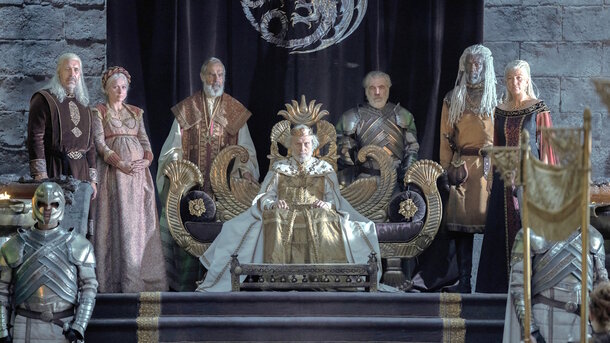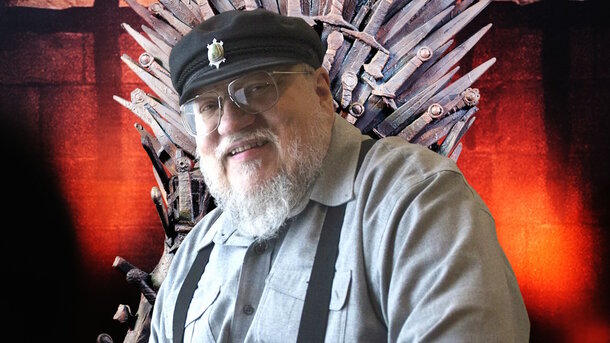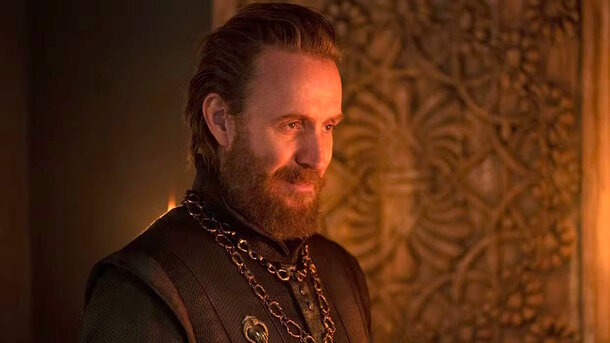George R. R. Martin wrote Fire and Blood not as a novel, but as a 'historical' document — filled with conflicting sources, maester speculation, and outright fabrication. This gave the showrunners of House of the Dragon total freedom: to choose which version to believe, and where to add their own. And in Season 2, they’ve fully embraced that freedom. Here are six notable deviations from the book that have already sparked heated debate among fans.
Aemond Becomes More Dangerous and Ambitious Than in the Book
In the book: Aemond is cruel and proud, but ultimately just a 'second son' doing his grandfather Otto’s bidding. He follows orders — he doesn’t make them.
In the show: Aemond is almost a Machiavellian figure on dragonback. He makes key decisions on his own, bypasses his father and grandfather, and, most importantly — clearly aims for the throne.
His betrayal during the Battle at Rook’s Rest is entirely invented by the writers, and it makes the character far more terrifying.

Betrayal Within the Green Faction: Aemond vs. Aegon
This is perhaps the loudest deviation of Season 2. In the book, Aemond and Aegon are allies, despite their contrasting personalities. In the show, a serious conflict brews between the brothers and escalates into direct confrontation. Aemond acts behind the king’s back, withholds information, takes Rook’s Rest without orders, and essentially starts playing his own game.
This turns the 'greens' from a united front into a nest of intrigue, where even brothers can’t trust each other. Aegon is portrayed as weak and confused, while Aemond becomes his shadow — one that wants to step into the light and take the crown. As a result, Aegon is nearly burned alive and only barely survives — all thanks to his own brother attacking him on Vhagar.
Alicent Becomes a Tragic Heroine, Not a Schemer
In the book: Cunning, devout, and ruthless. In Fire and Blood, Alicent is the classic 'evil stepmother' who will stop at nothing to put her son on the throne.
In the show: We see a woman torn between duty, faith, and sorrow. Her son is far from ideal, and her allies aren’t always trustworthy. Alicent has a heart — and it beats not with hunger for power, but with fear and worry. The writers shift the focus: instead of being Rhaenyra’s enemy, she becomes just another victim of the system.

Lucerys’ Death Becomes Almost Accidental
In the book: Aemond deliberately kills Lucerys, in a cold act of revenge — an eye for an eye. His action becomes the war’s trigger.
In the show: This is the turning point. The scene shows Aemond losing control of Vhagar, making the death a tragic accident, not an act of vengeance. Yes, he’s still a monster — but a monster horrified by what it’s done. By adding that sense of accident, the show makes the war not just bloody, but absurd — no one truly meant for it to start this way.
Secondary Characters Are Given More Depth
In the book, characters like Arryk and Erryk Cargyll, Lord Borros Baratheon, or Ser Criston Cole are little more than names. The show gives them voices, motivations — and most importantly, emotion.
For example, the conflict between Arryk and Erryk becomes a heartbreaking duel — not just a fight, but a tragedy about choice. And Criston Cole isn’t just a brutish executioner; he’s a devout fanatic who truly believes he’s defending honour.

The Prophecy of the Song of Ice and Fire Becomes a Central Thread
In the book: There’s no mention of Jon Snow or the battle for humanity. Just dragons, ambition, and blood.
In the show: A prophecy about a future threat from the North is added — passed from king to heir. It’s a fictional addition by the writers, but it connects House of the Dragon to Game of Thrones, adding a layer of tragic irony: Rhaenyra and Aegon fight for the throne, unaware that the real enemy will come not from the south, but from a frozen void.
House of the Dragon doesn’t just illustrate Fire and Blood — it argues with it. And in that argument, true drama is born. The story becomes vivid, bloody, and emotional. And no matter how much book fans may object, one thing is clear: Season 2 does what a chronicle never could — it reveals characters from all sides.









